Humanity has come a long way with its numerous discoveries throughout history. Everything from new locations to new species to new technologies, history is chock-full of notable findings and breakthroughs.
However, the universe is infinitely vast, so the journey never stops and there’s always something new to find. In fact, you’d be surprised how tremendously little we know about our own planet. The fact that we’ve only explored around 5% of our oceans is proof of how much is still left to be discovered.
Scientists discovered over 140 new Nazca Lines, including this one—a bird
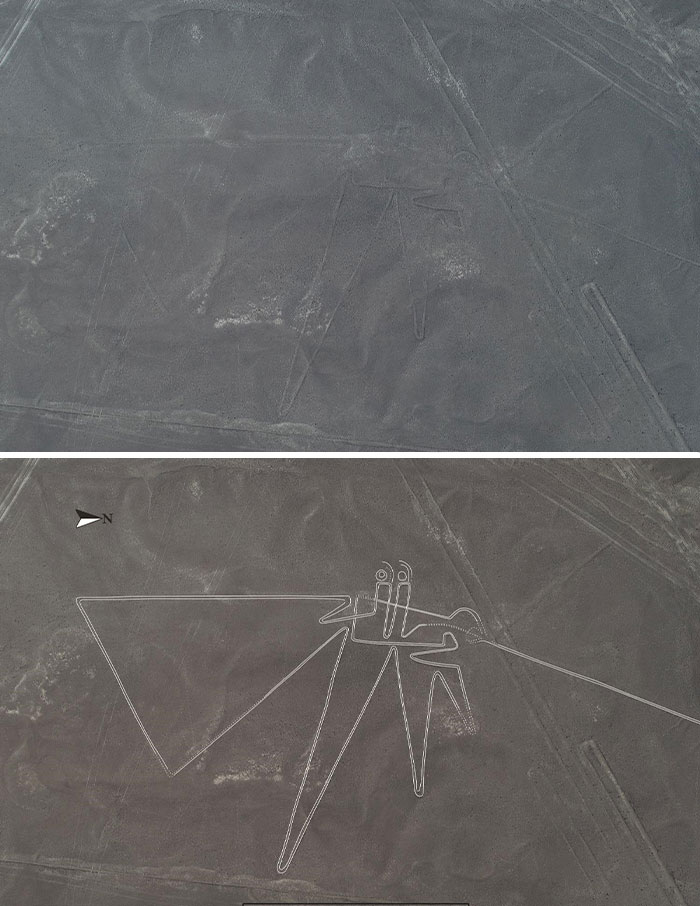
Image credits: Yamagata University
A team of Japanese scientists have found 143 new geoglyphs in the Nazca Pampa region, Peru. The team was lead by Cultural Anthropologist and Andean Archeology Expert Professor Masato Sakai of the Yamagata University.
Humanoid
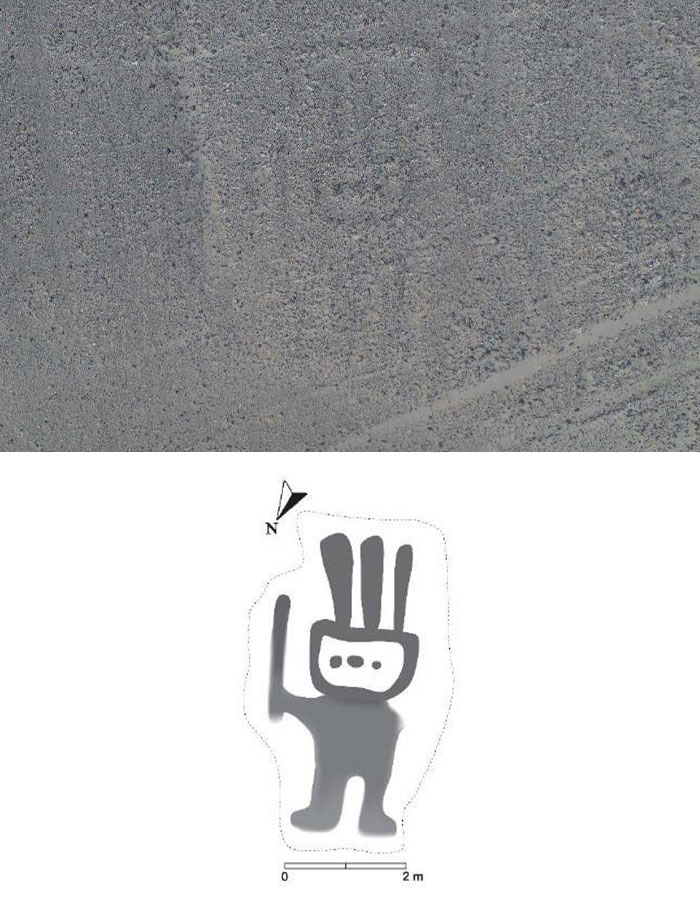
Image credits: Yamagata University
Humanoid
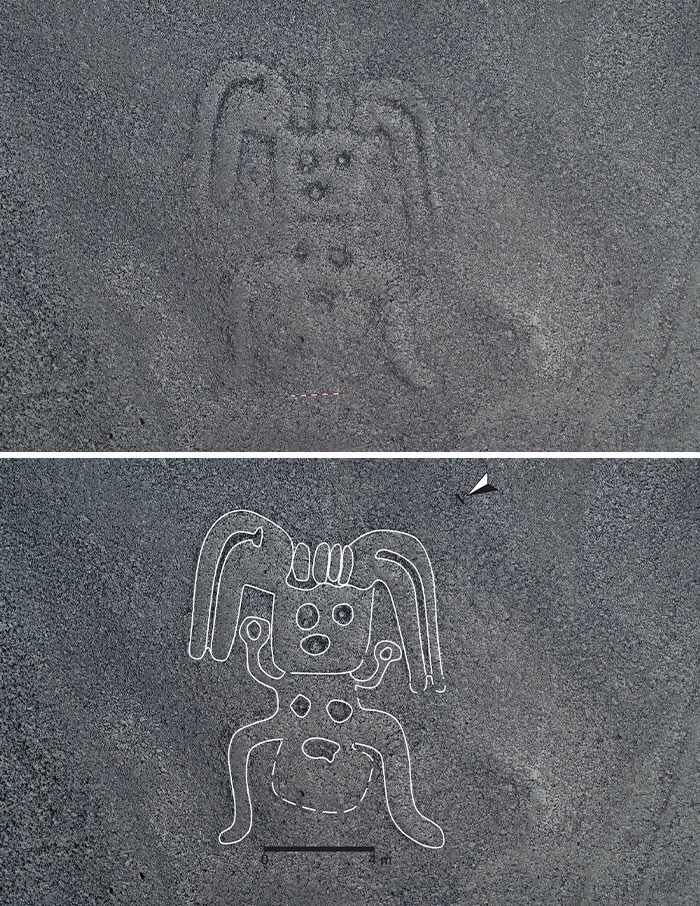
Image credits: Yamagata University
The Nazca Geoglyphs (also known as Nazca Lines) are a group of very large glyphs impressed into the soil of the Nazca Desert in southern Peru. These depict a variety of animals, people, plants, among other things. The glyphs date back to some time between 500BC and 500AD and is a designated UNESCO World Heritage Site.
Double-Headed Snake & Person
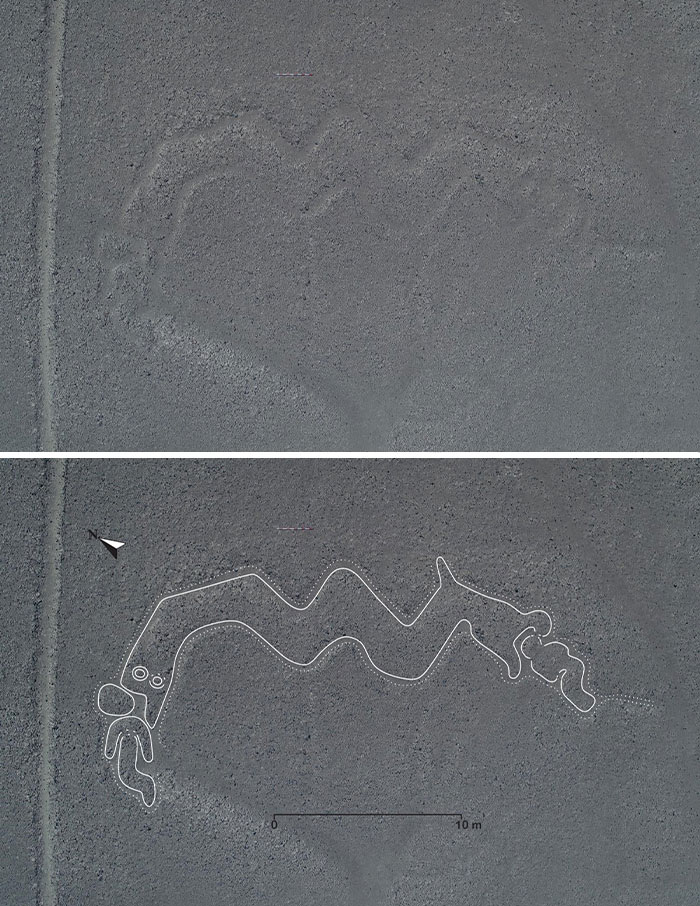
Image credits: Yamagata University
Fish
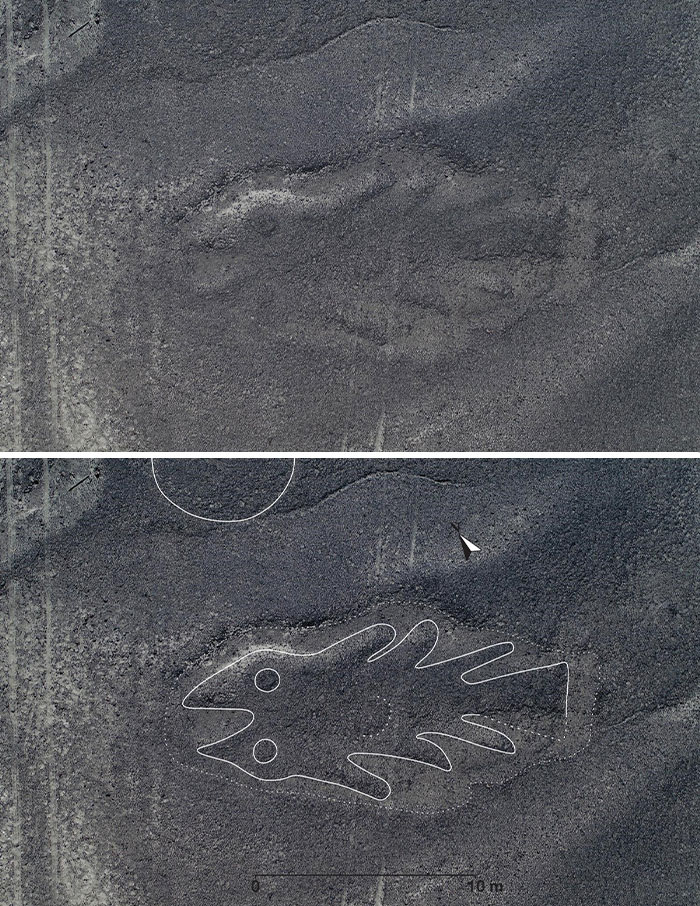
Image credits: Yamagata University
One of the more interesting facts about the Nazca Lines is that they are extremely huge. The individual figures can span anywhere from 0.4 to 1.1 kilometers across, amounting to approximately 1,300 kilometers of lines covering around a 50-square-kilometer area.
Killer Whale
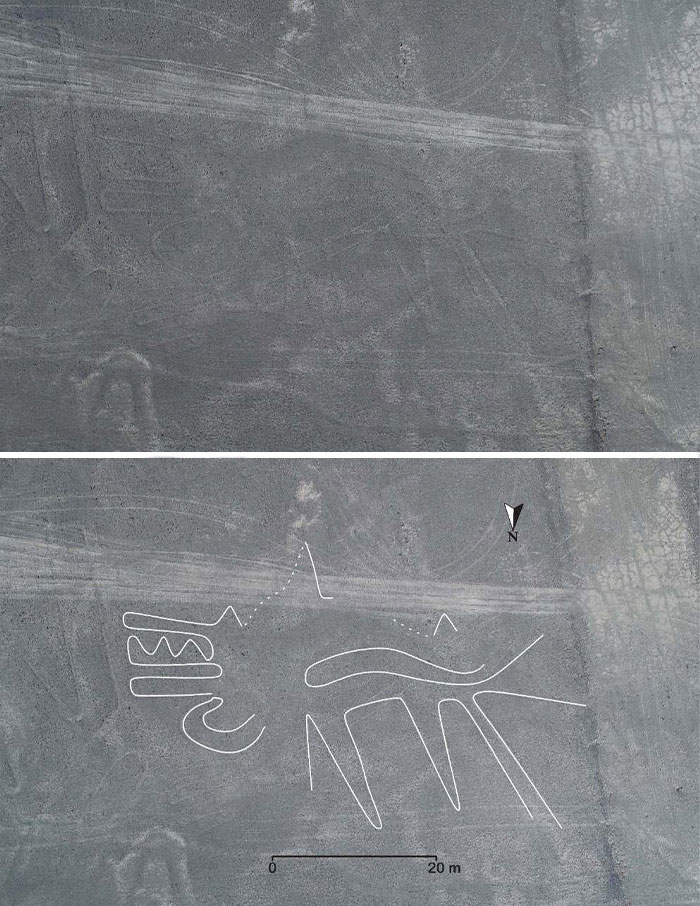
Image credits: Yamagata University
Humanoid
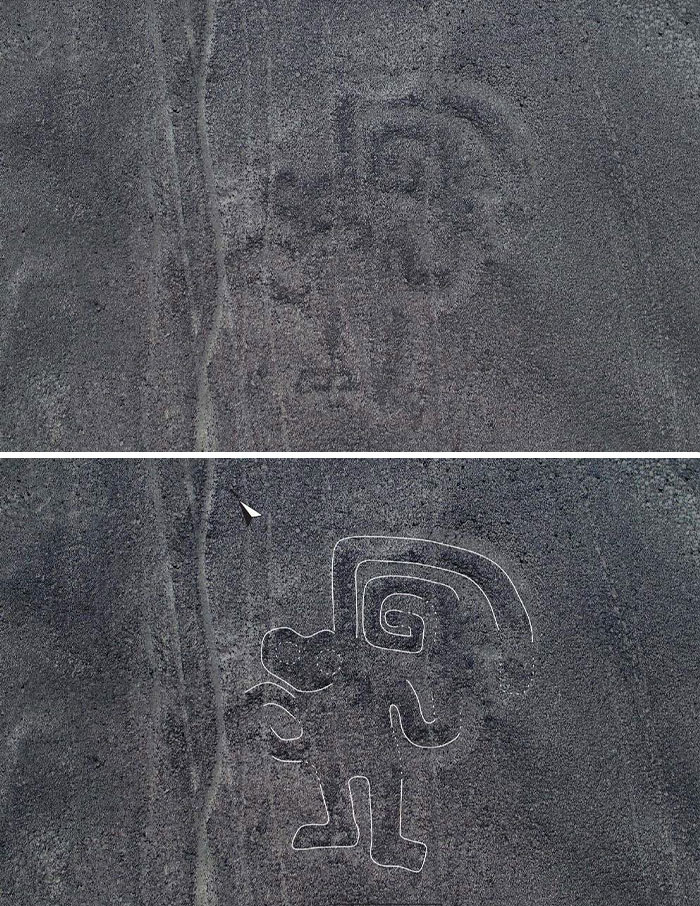
Image credits: Yamagata University
Professor Sakai and his team at Yamagata University began their studies back in 2004. Over the past 15 years, the team has identified numerous geoglyphs and has taken measures to preserve the heritage site. Factors like the expansion of urban areas has led to the damage of these lines, which drew gradual attention to the issue.
Mouse & Person
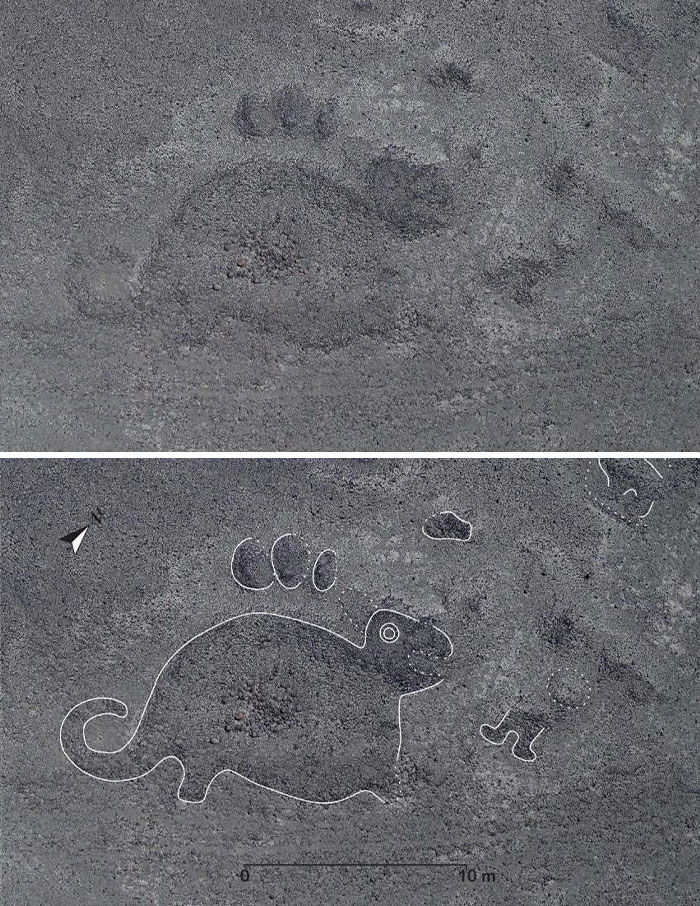
Image credits: Yamagata University
Human Neck
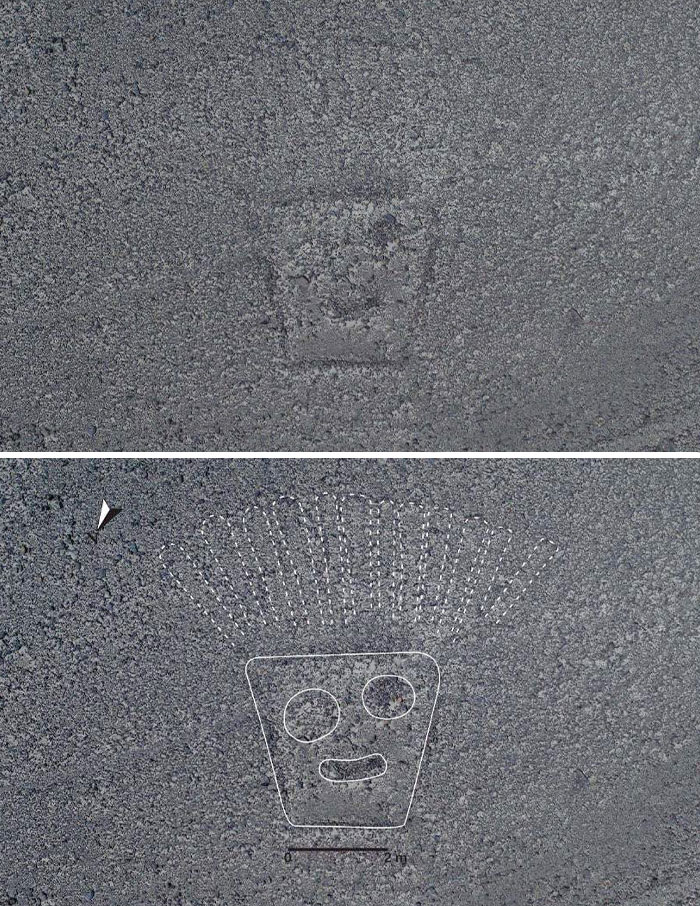
Image credits: Yamagata University
Besides carrying out extensive fieldwork and other activities, Sakai’s team analyzed a number of high-resolution 3D data. They have also managed to discover one more glyph by developing an AI model based on the AI server IBM Power System AC922 configured with the deep learning platform IBM Watson Machine Learning Community Edition. This led to the first geoglyph discovery by an AI in history.
Feline
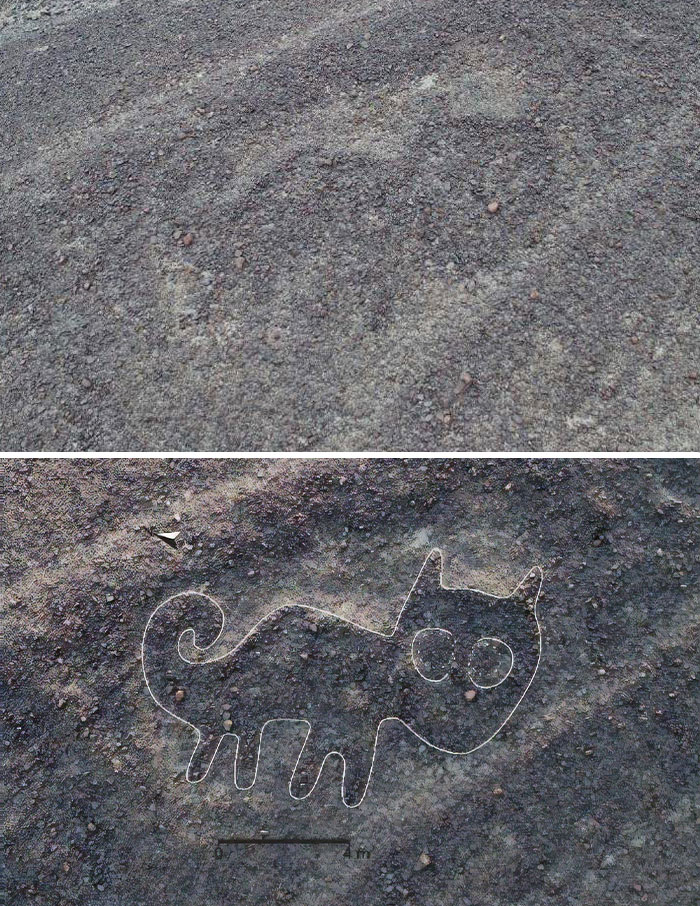
Image credits: Yamagata University
Fox & Bird
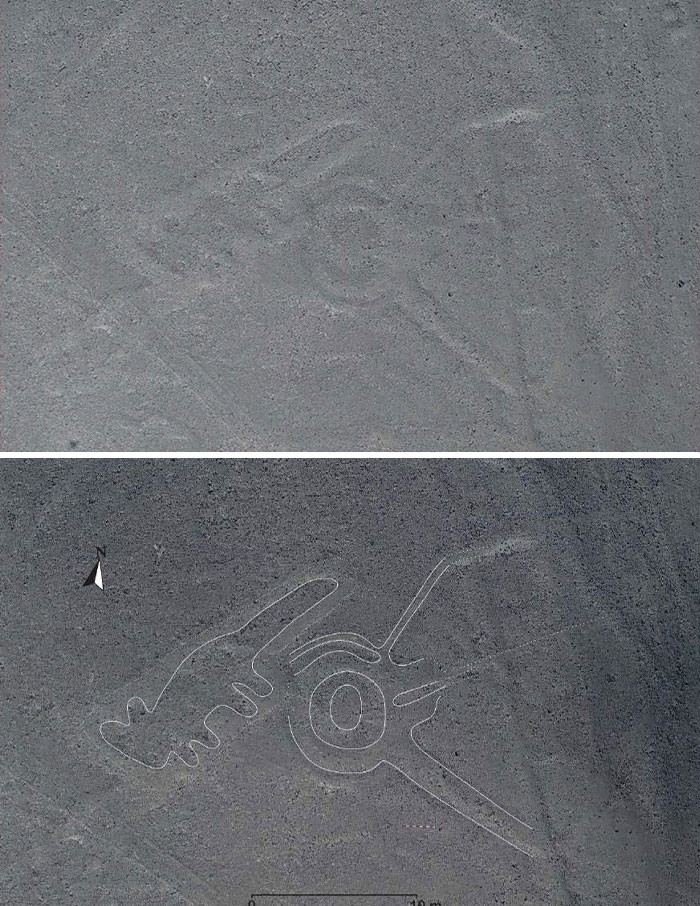
Image credits: Yamagata University
A collaboration with IBM Japan will allow the science team to analyze and manage large complex data sets using AI. The new tech and efforts invested in the study will inevitably promote a greater understanding of the Nazca Lines in their entirety, and will boost the speed at which research of this heritage site is done.
Here is a video from IBM Research showcasing the newly found geoglyphs
Image credits: IBM Research
by Robertas Lisickis via Bored Panda - Source
 Reviewed by Yuxx
on
2:52 AM
Rating:
Reviewed by Yuxx
on
2:52 AM
Rating:

No comments: